Description
ABSTRACT
The Yellow-Dog Contract and its Implications on Workers Participation in Labour-Management Relations in Nigeria
Professor Adeniyi Olatunbosun*
This paper discusses the legal status of the yellow-dog contract as an employment agreement whereby a worker promises not to join a trade union or promises to resign from a union if he is already a member. By this arrangement, the employers use a variety of measures or practices to prevent employees from joining trade unions. This practice frequently forces employees to either sign an agreement not to join a union or be fired if they so join. The paper also examines legislation passed forbidding the yellow-dog contract based on the underlying principle that all law is a compromise between the past and present, between tradition and convenience. There are two competing views, one which closely adheres to the common law in insisting upon absolute freedom of contract for employers and the other which disregards the common law and limits the right of freedom of contract wherever it seems to encroach upon other basic human rights. It further considers the fundamental assumption that the power to bargain collectively is optional and can be signed away and the other upon the fundamental assumption that the power to bargain collectively cannot be waived, but is a power which is vitally essential to the security and happiness of the workman. The paper concludes that yellow-dog contract enjoys a wide use in most industries, where they are used in nearly all the non-union fields.
INTRODUCTION
The law governing labour relations is a potent mechanism and the basis on which the very large number of workers earns their living. As it were, law can only make a modicum impact to the people’s standard of life.1 The degree of welfare depends on the productivity of workers’ input and the forces of the labour market with corresponding marginal influence of the law. Also, the degree of effective organisation of the workers into trade unions depends on modest contribution of law. The stark reality is that law plays a secondary role in labour relations. A greater threat to workers’ participation in labour-management is the decline in the existence of trade unions in some work places. This is attributed to the spread of capitalism and the manipulation of corporate organisation to maximise profit at the expense of workers.
In the same vein, the advent of technology has greatly eroded the impact of workers in the course of production resulting in gale of unemployment, layoffs and redundancy. The law can provide its own sanctions, administrative, penal, and civil, and their impact should not be underestimated. In labour relations, legal norms cannot often be effective unless they are backed by social sanctions recognising the countervailing power of trade unions and of the organised workers to withhold their labour. The law seeks to restrain the command power of management. How far it succeeds in doing so depends on the extent to which the workers are organised. The law also seeks to restrain the power of the unions. How far it can do so depends on the attitude of the employers.2
* Ph.D., BL. Professor of Law, Dean, Faculty of Law, University of Ibadan
- The idea of minimum wage legislation is a welcome development in labour relations in Nigeria and even abroad as it helps those on the bottom rungs of the social ladder to cope with the vagaries of economic variables with a marginal influence on their welfare. Safety at work is an aspect of labour relations that can be truly protected by law, while the standard of wages be it nominal or real which is another important issue of concern to workers can only be marginally regulated by legal rules and institutions in any capitalist oriented society, and this truism applies to a social welfare society
- In fact the worker does not participate in the making of the rules which govern his work, any more than the citizen, as a citizen, participates in the making of the laws he has to obey

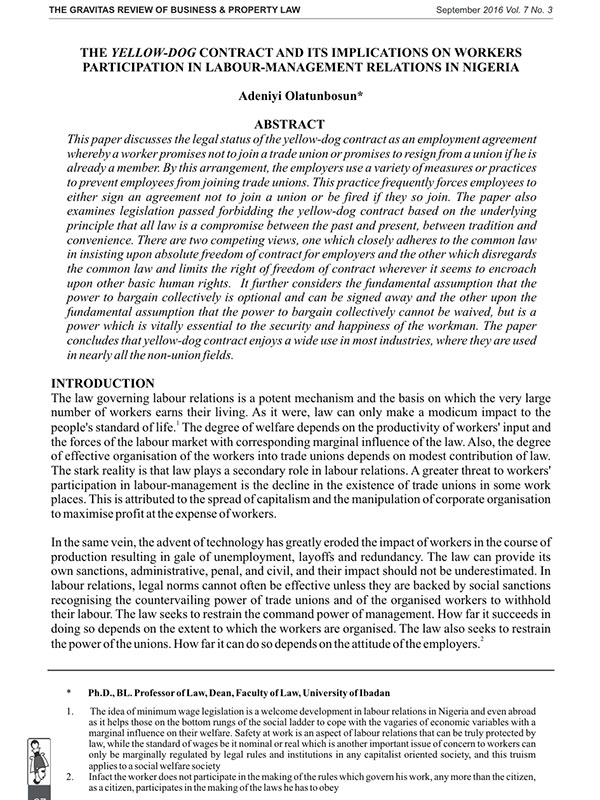
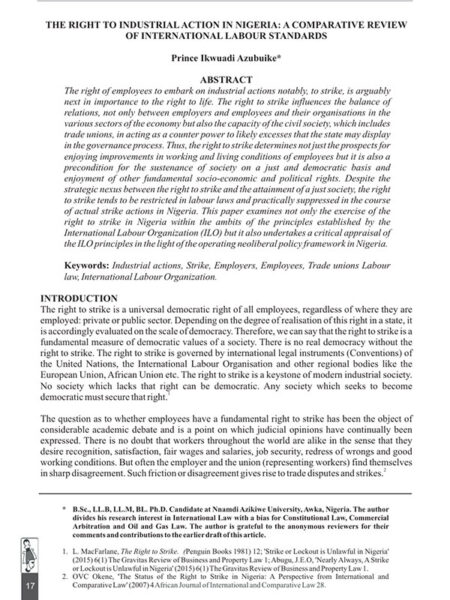
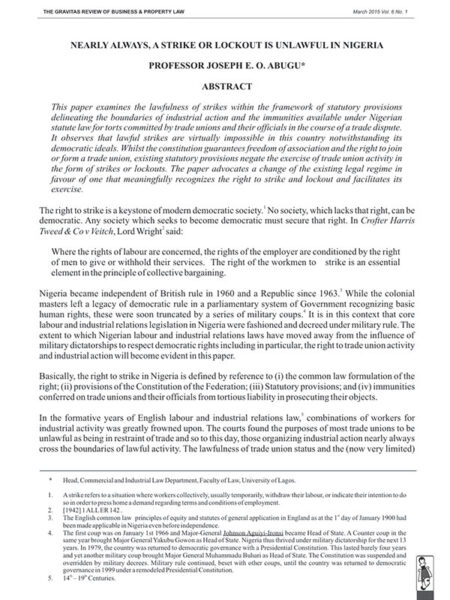
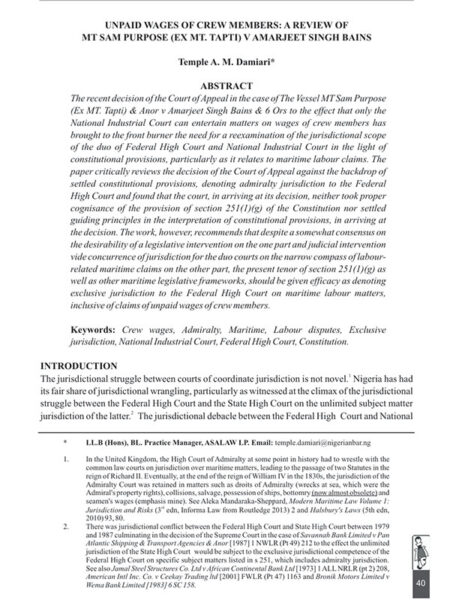
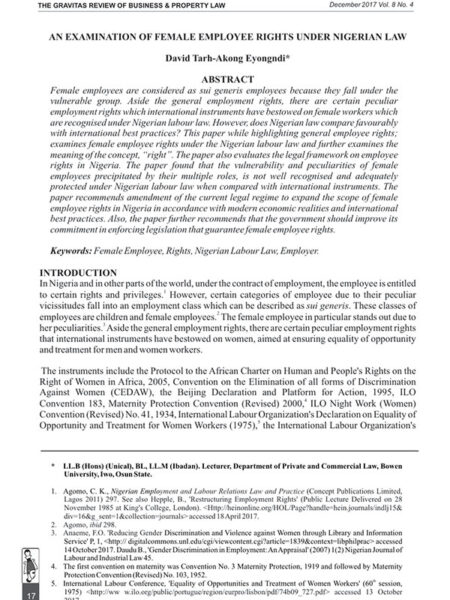


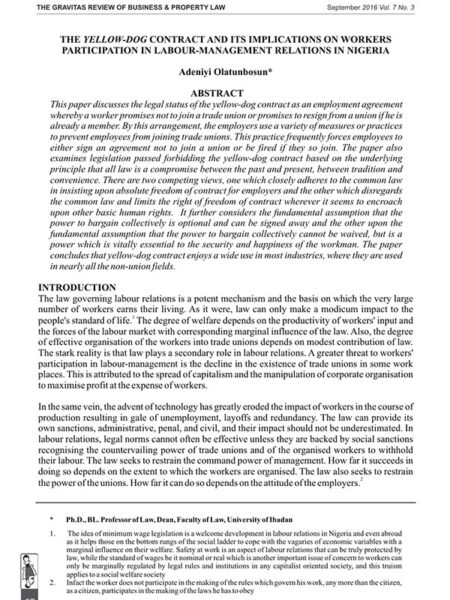
Reviews
There are no reviews yet.